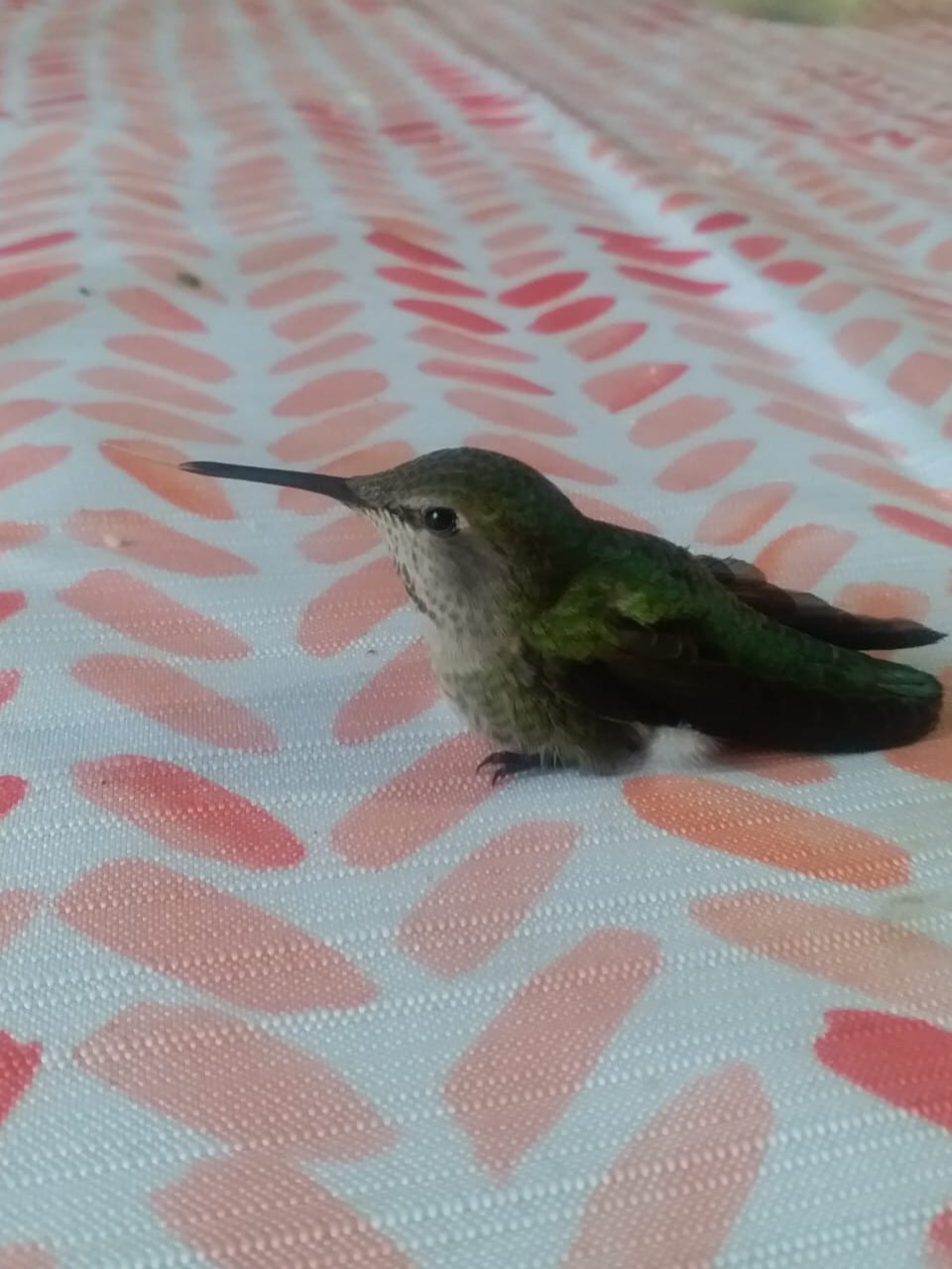Squamish’s Laxmi Sharma discovered an unconscious hummingbird on her balcony on Dec. 26.
It was -12 C that morning.
She brought it inside, where it was warm.
“The bird was fine in a few hours. It tried to fly — it wanted to go out because another bird was waiting for it, so we let it go," she said.
A happy ending for that tiny bird.
Tips
According to the Wildlife Rescue Association of British Columbia, if you find a stunned or injured wild bird, the first step — as Sharma did — is to observe before taking action.
The association says that if the bird is clearly injured, predators are visible, the bird is covered in bugs or insects, or looks sleepy, then human intervention is required, the rescue organization says.
If action is required
Do
- Call 604-526-7275 (Wildlife Rescue’s Helpline) to leave a message with the details of your observation and your contact information;
- Take a photo of the scenario and email to [email protected];
- If capture is necessary, keep the bird in a warm, dark place away from human voices and other pets or noises until a helpline volunteer can call you back.
Don’t
- Do not hold the bird in your bare hands;
- Do not keep the animal for longer than 24 hours;
- Do not try to care for or fix injuries on your own;
- Do not give food or water to the bird without professional advice from a licensed wildlife rehabilitator.
How to contain an Injured bird
- Find a cardboard box that is large enough for the bird. A shoebox works well for songbirds;
- Poke small air holes in the box;
- Take a towel, sheet or t-shirt and place it quickly on top of the bird. Make sure its head is covered. This will help to calm the bird down;
- Gently scoop the bird up and place it in the box;
- Loosen the towel to uncover the bird;
- Close the box securely and leave it in a dark, warm and quiet place to minimize stress on the bird;
- Do not handle or look at the bird — minimizing stress is the best thing to do;
For more helpful tips, go to the Wildlife Rescue Association of British Columbia.



